We can cross live to our guest who has been patiently waiting to speak to us there as we brought that we wanted to bring that to our audience that sole comments but let’s speak to you yeah Yunus Soner, political analyst from Türkiye. Yunus thank you very much for holding on there. That point about the much-anticipated BRICS expansion: so you’ve got six nations joining from the start of next year. Your thoughts on the countries admitted and the significance of this enlargement?
I think there’s two aspects in this expansion.
One, the aspect of the concrete given six countries that joined the BRICS, which have a population of more than 400 million persons, which is more than the United States has, and almost equal to the population of the entire European Union. So this is a huge population, this is of course a huge economic force, a productive force that is joining BRICS here.
But on the other hand, there is a second aspect, and I think that is even more important: That is the ambition of BRICS to lead the world. To lead the world. I see in the documents published here, and you also mentioned in the speeches that have been held here, the ambition, the will, the determination to lead mankind from the global south. You see that in all details, reform of the UN, reform of financial institutions, multilateralism, global health issues, science and so on.
In all of them you see, I see at least, clearly the will of BRICS to lead a force that guides humanity. That not only wants to have a share, have a position in a multipolar world, but that actually wants to lead that multipolar world.
And I think these two aspects together are very, very historic.
We’ve just been hearing that exactly as you’re saying being laid out by those leaders comments, Yunus. Can I put another point to you? With BRICS actively challenging the US dollar as the main global reserve currency overtaking the G7 and a key economic indicator as well, PPP, everything appears to be going the right way for the bloc. Do you expect opposition to that, to its desire for a more equitable world?
Of course. I mean, here is the US hegemony globally challenged, and it’s not only challenged in regard to currency, but it’s also challenged in regard to arms, to military. I mean, the Ukraine crisis is a challenge to US hegemony. Elsewhere, in Libya, you see the challenge to US hegemony. In Syria, you see the challenge to US intervention politics. In Africa, you have several conflicts where the US and its allies like France are being pushed back. So there is a challenge. And of course, the current hegemony, the US hegemony, will react, is reacting actually, is pushing forward, is pursuing aggressive politics, not only around Russia, also around China, around Türkiye, which we might talk later on as well, in Africa as well.
So this is a conflictual time, it is a time of transition, they will react, but I think that this is the emerging part here, this is the new part, this is the dynamic part, and on the other side we have on the Atlantic, we have the old power. We have, and this has been by the way, even acknowledged by the Secretary General of the United Nations who said that this is not the world of 1945 anymore, that the world has changed. Well, what was the world of 1945? It was the victorious US world. It’s not that anymore. So even the UN Secretary General acknowledges that there is change is taking place and that international organizations will have to react to that.
I’m just looking at some of the headlines in Western newspapers though, and they’re pretty much dismissing what’s going on here calling it just another economic block in the West or would they be considerably, would they be putting their ears up, their antenna up to what is coming out of Johannesburg today?
I think they are following closely what’s going out in Johannesburg today, though they don’t admit. I heard the German foreign minister saying that she does not care about other countries joining BRICS. I don’t think this is true. I think she a lot of cares about it. I know that for instance, South Africa has been pressured by the Americans using the free trade agreement they have, both on South Africa’s policy towards Russia and also towards the BRICS alliance. I think they are pressuring, they are watching very closely and I am speaking of blocks. BRICS is accused to be a block. I think what is more a block in terms of being closing itself in, building walls around itself, being protectionist is the Western block. So take a close look at the statement here at the BRICS. It demands open spaces, it demands open trade, it demands no protectionism, it demands cooperation. Meanwhile, in the West we see that the US is even forbidding some social media applications. So the block in terms of closing itself in, that is the United States. And this is the expanding kind of new world on the horizon.
You know, I did want to just touch briefly upon Türkiye as you mentioned. We’re just right out of time, but we will talk to you again I’m sure shortly on whether Ankara has a desire to join. It had briefly said that it wanted to, so we’re waiting just to find out a little bit more on that, but we have to say goodbye for now. Sorry about that. Yunus Soner, our political analyst from Türkiye, live from Johannesburg.


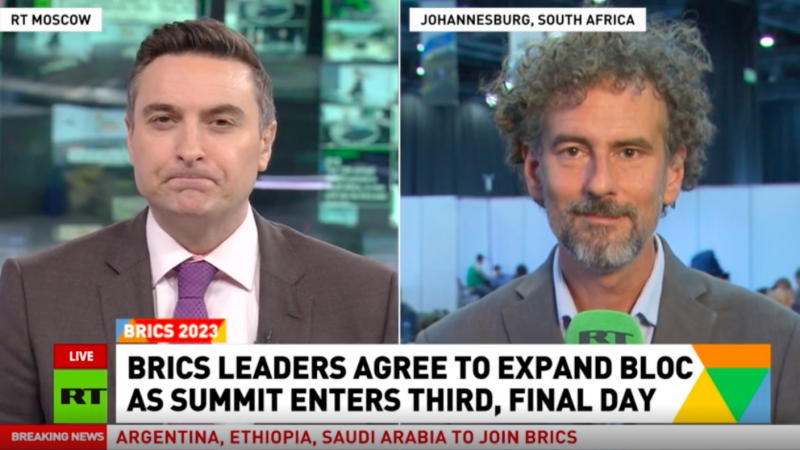
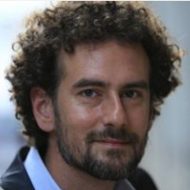
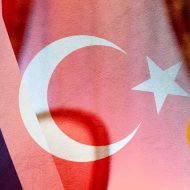
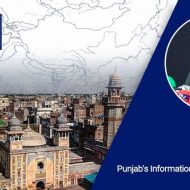
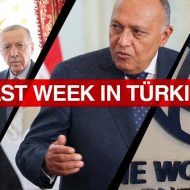


Leave a Reply